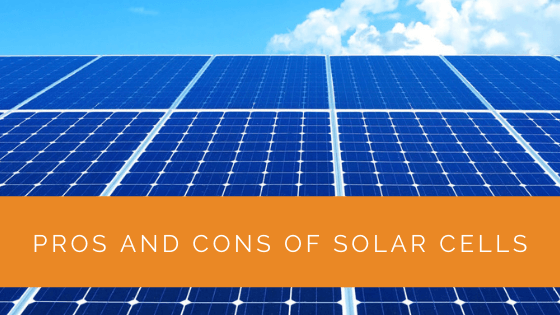Solar energy has become a buzzword in the quest for cleaner and sustainable power sources. To fully appreciate the benefits and limitations of this renewable energy, it’s crucial to start with a clear understanding of its fundamental building blocks: solar panels and photovoltaic (PV) cells. These components form the backbone of solar energy systems, efficiently converting sunlight into electricity. In this article, we will delve into the pros and cons of solar cells, shedding light on their environmental advantages, cost-saving potential, and the challenges they may pose. Whether you’re considering a solar panel installation for your home or simply intrigued by the science behind this technology, read on to explore the fascinating world of solar cells and their role in shaping our energy landscape.
Contents
- 1 The Correlation of Solar Panels and PV Cells
- 2 A Quick Look At Solar Power Cells
- 3 The Science Behind Solar Cells
- 4 Pros Of Solar Cells
- 5 Cons Of Solar Cells
- 6 Frequently Asked Questions
- 7 Case Study: Understanding the Impact of Solar Cells in Residential Energy Systems
- 8 Expert Insights From Our Solar Panel Installers About the Pros and Cons of Solar Cells
- 9 Discover the Power of Solar with Solar Panels Network
- 10 Summing Up
The Correlation of Solar Panels and PV Cells
An overview of solar energy is always important to gain clarity. After all, jumping straight to the technical pros and cons can lead to unnecessary confusion.
So, here’s a quick look into solar panels and their relation to PV cells.
- Installing solar panels is the major step to use this renewable energy
- The solar panels are made from a number of elements
- These elements are prominently called solar cells or PV cells
- A solar panel system works on the energy conversion process
- Solar cells harness solar energy to produce electricity
Hence, solar cells are the main components that use this clean, renewable energy source.
Now, whenever you read about solar panels generating electricity, understand that the cells do the actual work.
A Quick Look At Solar Power Cells
There is no need to recall your science classes. Here’s what you need to know about solar cells.
- These cells are made from semiconductor material like silicon
- Solar or PV cells convert sunlight or solar energy into electricity
- PV cells require advanced manufacturing techniques leading to the high initial cost
- Constant research in solar power systems suggest ways to increase solar cell efficiency
Compared to other energy conversion items like fuel cells, these renewable components do not utilise chemical reactions.
Solar panels are made from a group of solar cells known as an ‘array.’ However, an extensive array of these cells are seen in central electric power stations.
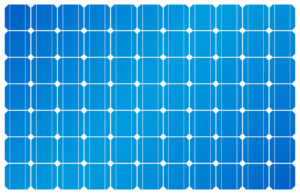
The Vast Utility Of Solar Cells
Most consumers know about the application of solar panels in residential and industrial setups. However, solar cells find extensive use in other applications as well.
Due to the absence of moving components, these cells are used in space applications. In addition, weather satellites and space stations are potentially hi-tech locations for these PV cells.
The energy produced by these cells can power various common gadgets as follows.
- Calculators
- Watches
- Toys
- Radios
- Flashlights
- Light solutions
These cells are vital to achieving energy independence from fossil fuels and conventional batteries. Notably, solar cells can even use an artificial light source to generate clean energy.
So, a wide range of applications and potential to generate electricity from any light source makes solar cells an essential component.
The Science Behind Solar Cells
Scientific basics are vital to understanding any technology. Since a solar panel system uses PV cells for energy conversion, it is interesting to know the fundamentals behind the working.
A solar cell is made of three layers.
- Antireflection layer
- Energy-conversion layer
- Electrical contact layer
The first layer traps incident light and transmits it to the energy-conversion layers. Next, the second layer converts light energy into electricity.
Finally, the electric contact layers carry this current to the external load. Hence, the same process takes place in a solar power system.
It is still vital to realise that these steps are just a simple explanation. If you delve deep, you will find much information about solar cell layers.
However, as a solar system consumer, these fundamentals are enough to understand the working principle.
Pros Of Solar Cells
At this time, you can find loads of information about solar energy advantages. However, knowing the benefits of solar cells is equally intriguing.
Green Energy Source
No moving objects, no chemical reactions. Solar cells utilise solar energy, which is a clean source. Hence, solar panel systems help reduce carbon footprint.
The growing utility of solar cells leads to a decrease in dependency on fossil fuels. Hence, there is a direct decline in greenhouse gases emissions.
In addition, solar cells help develop innovative products that do not require traditional energy sources. So, alternatives like a solar power plant, off-grid solar installation, and solar farms are possible due to these wonderful cells.
Reduces Electricity Bills
The direct pro or advantage of solar cells is the installation of a solar energy system. So, you can use the free energy available from the sun and power your gadgets.
This installation leads to a gradual decline in your monthly electric bill. Also, you can send the surplus energy back to the power grid in some locations.
Such cost-saving solar energy pros are a direct result of solar cells. Hence, these cells give you your money’s worth in the long run.
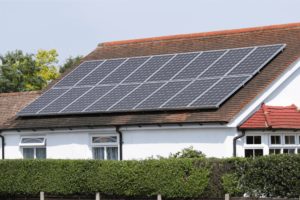
Zero Harm to the Environment
In addition to combating rising energy costs, solar cells help prevent any environmental impact. Solar systems do not emit harmful pollutants or chemicals.
Also, solar cells do not produce any noise during energy conversion. This factor is vital for mass installation in urban areas.
Thus, adding solar panels is an environmentally friendly activity. You can also produce power in a flexible way without any damage to nature.
Ease in Installation
You can set up solar panels on the ground or roof space without much hassle. The robust solar cells make such designs possible.
Solar arrays are large in size but easy to install at desired locations. Hence, this ergonomic nature of PV cells leads to a minimum effect on our lifestyle.
Also, the potential to arrange these cells in different configurations makes them useful in intricate locations.
Solar System Incentives
In the UK, you can avail of incentives and grants for solar panel installation. So, you end up reducing electricity bills along with lucrative government grants.
This combined benefit leads to instant energy independence at a reasonable budget. At this time, solar incentives and a competitive market have lowered the high initial cost.
So, you can install battery storage without spending too much money. All these economic benefits are a result of solar grants, which are directly linked to solar cells.
Long Service Life
Solar panels made from PV cells last for 25 to 30 years. This long service duration is enough to prove the durability and robustness of these systems.
Hence, you can cover the upfront installation costs due to durable solar cells that require low maintenance and replacement.
In addition, all the panels installed on your rooftop remain efficient without maintenance for a longer duration.
Cons Of Solar Cells
The benefits of PV or solar cells are encouraging. However, you should also analyse some practical limitations and disadvantages of these items.
Highly Expensive, But There is a Catch
Solar installations need a high initial investment. This high price is a result of material, labour, and installation costs.
However, you can use solar financing options from governments and companies to combat this challenge. Also, the cost of solar cells and related equipment has declined in the past decade.
Concepts like net metering allow consumers to install solar panels in an under-control budget.
High Dependency On Sunlight
Solar panels and cells cannot operate without sunlight. You will notice the same point in any information explaining the cons of solar energy.
Compared to other countries, the UK doesn’t receive strong sunlight. Hence, solar cells can struggle to generate more electricity.
Still, there is a solution to counter this limitation. You can stay connected to the traditional electric grid and use solar energy simultaneously.
Also, batteries store surplus energy to power the house at night. Nevertheless, dependency on sunlight is the main limitation of solar cells.
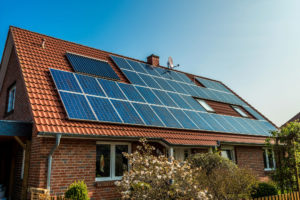
Requirement of Adequate Space
If you want more electricity, an installer will suggest bigger-sized solar panels. So, you will require adequate space for installation.
Since most solar power systems are installed on rooftops, residents need a large roof. So, to enjoy benefits like reduced energy bills and solar incentives, you need proper planning.
Moreover, a reliable solar panel installer can suggest the best size of solar panels for your home. In addition, professional companies can check the feasibility of a solar energy system based on your location.
Need of Auxiliary Equipment
Solar cells won’t be enough to work as an energy source. In fact, you will need to install a complete solar energy system for the best results.
Here are additional parts that can need your consideration.
- Inverter
- Storage batteries
- Charge controller
- Power meter
- Backup power
In some cases, you won’t need all of this equipment. However, components like inverter and battery banks can lead to additional expenses.
This is one of the disadvantages of solar cells and the entire system. With the hi-tech manufacturing process and techniques, consumers can expect a decrease in the costs of such components.
Frequently Asked Questions
Here’s a quick look at the common queries amongst solar energy enthusiasts.
Can We Install Solar Panels by Ourselves?
DIY solar panels are perfect alternatives for consumers who wish to save installation money. However, these panels are generally suitable for off-grid solar systems.
You will require a certain level of expertise to install solar panels on your own. Also, the overall process is time-consuming.
Why Are Most Solar Cells Made from Silicon?
Photovoltaic cells use silicon as the semiconductor due to its high energy conversion efficiency. Also, silicon is a cost-effective semiconductor.
In addition, it has benefits like corrosion resistance, durability, abundant availability, and low thermal conductivity. These benefits, along with well-established manufacturing techniques, make silicon an ideal semiconductor for solar cells.
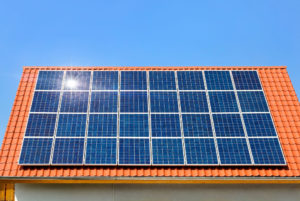
Do Solar Panels Work Under the Moonlight?
Theoretically, PV cells work under any light source. Moonlight is a reflection of sun rays from the moon. So, solar cells work under this light.
However, the operational efficiency under the moonlight is negligible. Hence, you cannot produce adequate electricity under the moonlight.
Case Study: Understanding the Impact of Solar Cells in Residential Energy Systems
Background
At Solar Panels Network, we have been at the forefront of installing solar energy systems across the UK. One of our recent projects involved helping a residential client navigate the decision to adopt solar technology. The client was particularly concerned about the environmental impact and the potential financial savings of switching to solar energy.
Project Overview
The client’s primary goal was to reduce their carbon footprint while also cutting down on their electricity bills. They were interested in understanding the practical benefits and limitations of solar cells, including the initial investment, potential savings, and overall environmental impact. Our task was to provide a comprehensive analysis and guide them through the decision-making process.
Implementation
- Energy Audit: Conducted a detailed assessment of the client’s current energy usage and peak electricity consumption times.
- Cost Analysis: Provided a breakdown of the costs associated with installing solar panels, including potential savings on electricity bills and available government incentives.
- Technical Assessment: Evaluated the suitability of the client’s property for solar panel installation, considering factors such as roof space, orientation, and shading.
- Environmental Impact Assessment: Calculated the reduction in carbon emissions achievable through the proposed solar system, emphasising the environmental benefits.
Results
- Environmental Impact: The solar panel system was projected to significantly reduce the client’s carbon footprint by approximately 2.5 tonnes of CO2 annually. This reduction aligns with the client’s environmental goals and contributes positively to global sustainability efforts.
- Financial Savings: The client was informed that, despite the high initial cost of installation, the long-term savings on electricity bills would be substantial. With government incentives and potential feed-in tariffs, the payback period for the investment was estimated to be around 7-10 years.
- Operational Efficiency: The client was advised on the importance of proper maintenance and monitoring to maximise the efficiency and lifespan of the solar panels. They were also educated about the potential limitations during periods of low sunlight, typical in the UK’s climate.
Summary
This case study highlights the importance of a thorough evaluation when considering the adoption of solar cells for residential energy systems. The environmental benefits, such as significant reductions in carbon emissions, are clear and compelling. Financially, while the initial costs can be daunting, the long-term savings and available incentives make solar panels a viable and attractive investment. However, it’s crucial for potential users to understand the limitations, including dependency on sunlight and the necessity for adequate roof space. At Solar Panels Network, we are committed to providing clear, accurate, and comprehensive guidance to help our clients make informed decisions about their energy futures.
Expert Insights From Our Solar Panel Installers About the Pros and Cons of Solar Cells
One of the most significant advantages of solar cells is their ability to provide a clean, renewable energy source. By harnessing sunlight, solar panels help reduce carbon emissions and reliance on fossil fuels. This environmental benefit is a major draw for eco-conscious homeowners.
Senior Solar Consultant
While the initial cost of solar panel installation can be high, it’s important to consider the long-term savings. Solar cells can significantly lower electricity bills over time, and with government incentives, the financial benefits can be quite substantial. However, potential users should be aware of the upfront investment required.
Renewable Energy Specialist
One of the main challenges with solar cells is their dependency on sunlight. In the UK, with its often overcast weather, solar panels may not always operate at peak efficiency. It’s crucial for homeowners to understand this limitation and plan accordingly, perhaps integrating battery storage to maximise energy use.
Solar Installation Engineer
Discover the Power of Solar with Solar Panels Network
Are you navigating the world of solar installations? Look no further than Solar Panels Network, the UK’s trusted partner in harnessing the sun’s potential. Our dedication goes beyond just installations; we’re on a mission to transform how homeowners and businesses across the UK perceive and utilise energy. By choosing us, you’re not only reducing your carbon footprint but also making a smart financial move that promises savings for years ahead. Contact us today and embark on your solar journey.
Summing Up
Solar cells are exciting prospects today and in the near future. They have the potential to replace conventional energy sources and power numerous appliances.
At this time, with a rapidly-growing solar infrastructure in the UK, it is encouraging to invest in this technology. You can make the proper decision after knowing the pros and cons of solar energy systems.
Moreover, it is vital to analyse how solar systems can become a part of your lifestyle. Understanding the basics is an essential step.
In the case of solar cells, the pros outweigh the cons. Hence, if you feel going solar can help you control the rising electric bills, investing in solar panels is lucrative.
About the Author
Solar Panels Network stands at the forefront of solar energy solutions, driven by a team of seasoned solar engineers and energy consultants. With over decades of experience in delivering high-quality solar installations and maintenance, we are committed to promoting sustainable energy through customer-centric, tailored solutions. Our articles reflect this commitment, crafted collaboratively by experts to provide accurate, up-to-date insights into solar technology, ensuring our readers are well-informed and empowered in their solar energy decisions.

